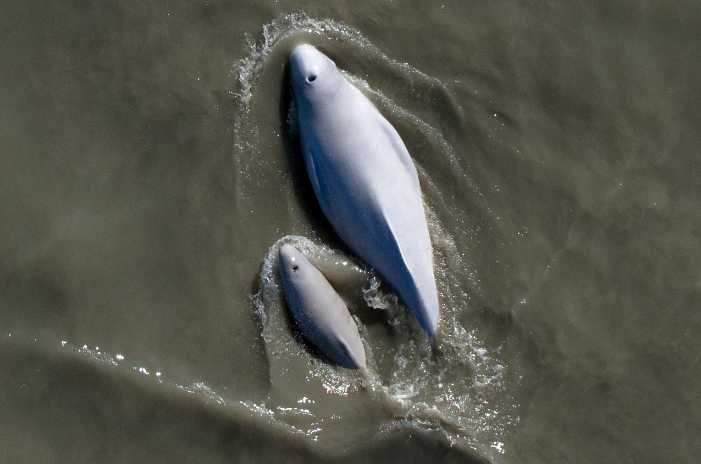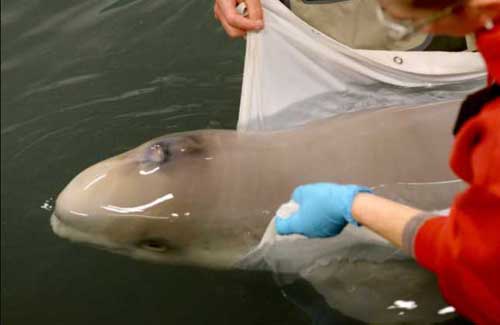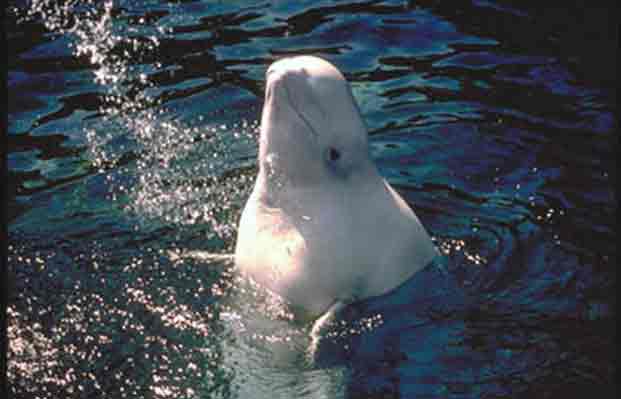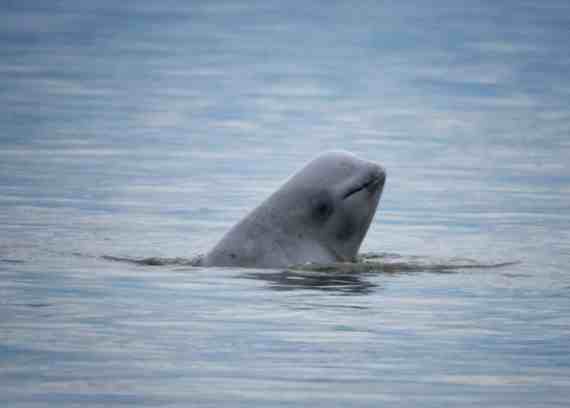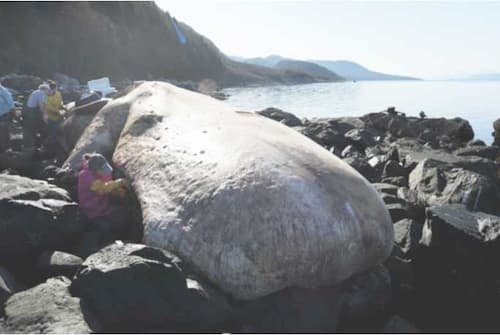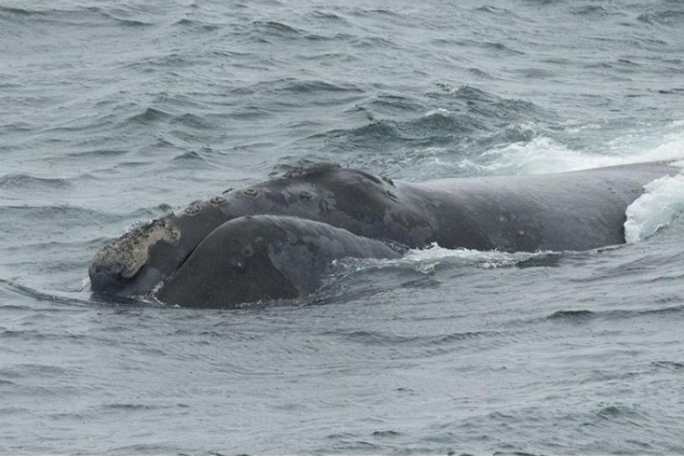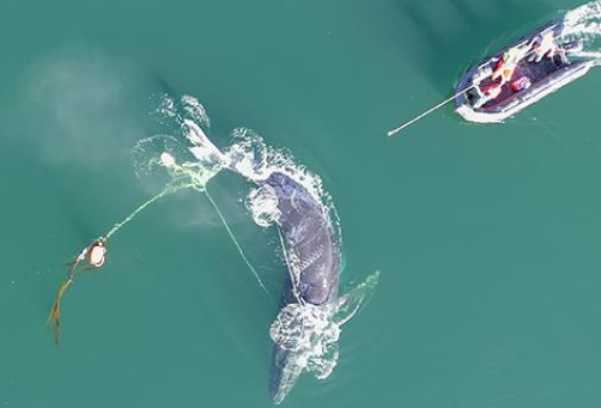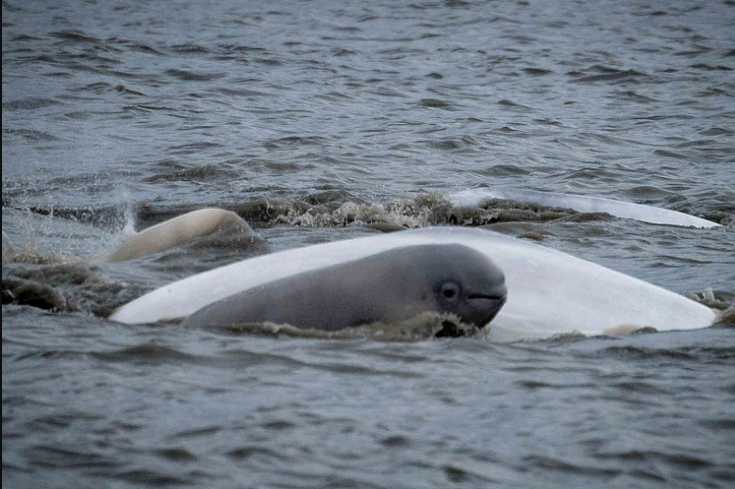Community science along the shores of Cook Inlet.
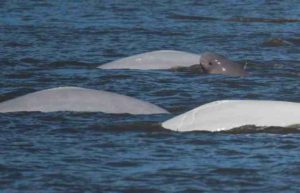
It Takes a Village
The Alaska Beluga Monitoring Program is run by NOAA Fisheries in collaboration with several organizations. It offers opportunities for volunteer citizen scientists to bolster monitoring efforts for the endangered Cook Inlet beluga whale population. The volunteers collect important data on beluga distribution and habitat use in nearshore waters of the Inlet while building working relationships with professional scientists. This collaboration has led to standardized scientific monitoring protocols, volunteer training to support monitoring efforts, and coordination of shore-based beluga monitoring activities at multiple sites along Cook Inlet.
The program was founded in 2019. It built upon existing citizen science monitoring efforts to track Cook Inlet belugas through a collaboration between Friends of the Anchorage Coastal Wildlife Refuge, Defenders of Wildlife, and NOAA Fisheries. In June 2019, the program was formed to establish a better foundation to support and strengthen beluga monitoring efforts and standardize monitoring procedures across new and existing sites. Current partners and collaborators of NOAA Fisheries include:
- Alaska Wildlife Alliance
- Beluga Whale Alliance
- Defenders of Wildlife Alaska
- Kenai Peninsula College
- Alaska Wildlife Conservation Center
The program’s first collaborative monitoring season started in August 2019 and ran through mid-November. With a team of collaborators and volunteers, the inaugural season was a tremendous success! The program hosts two monitoring seasons annually in spring (mid-March through May) and fall (mid-August through mid-November). Partner organizations and volunteers monitor beluga activity from established monitoring sites. The distribution, nearshore habitat use, and behavioral data collected are shared with scientists and federal agency personnel. The information is used to update marine mammal research and management activities, pinpoint important foraging locations, and understand the impact of human activities.
Why Cook Inlet Belugas?
The critically endangered Cook Inlet beluga is an important part of the regional ecosystem. Its abundance rapidly declined beginning in the 1980s. NOAA Fisheries designated the Cook Inlet beluga population as depleted under the Marine Mammal Protection Act in 2002 and endangered under the Endangered Species Act in 2008.Even though the Cook Inlet beluga is no longer the target of subsistence harvests, the population has not recovered since being ESA-listed. It continues to decline as it faces ongoing human-caused physical and noise threats such as ship and boat traffic, construction, oil and gas activities, fishing, and aviation. While this beluga population is being studied extensively, data on distribution, seasonal habitat use, and behavior throughout Cook Inlet is still insufficient. By participating with ongoing monitoring efforts, citizen scientists can help fill data gaps and contribute to beluga recovery.
Read full article at NOAA Fisheries
[content id=”79272″]

